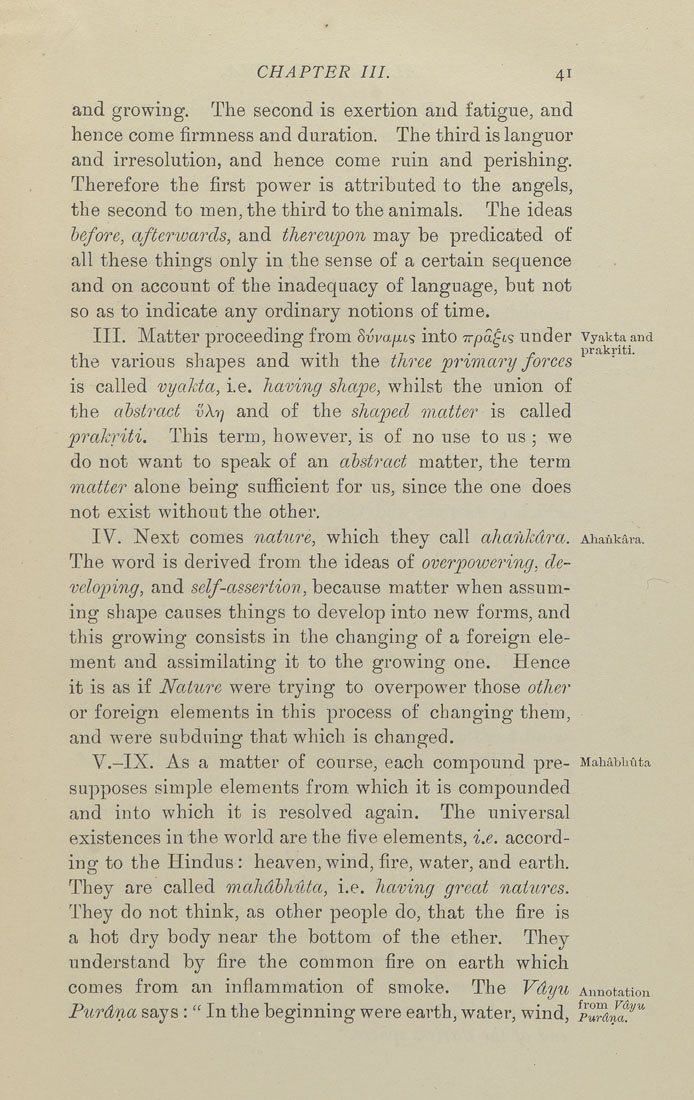Bīrūnī, Muḥammad ibn Aḥmad, Alberuni's India (v. 1)
(London : Kegan Paul, Trench, Trübner & Co., 1910.)
|
||
|
|
|
|
| Page 41 |

CHAPTER III. 41 and growing. The second is exertion and fatigue, and hence come firmness and duration. The third is languor and irresolution, and hence come ruin and perishing. Therefore the first power is attributed to the angels, the second to men, the third to the animals. The ideas before, afterwards, and thereupon may be predicated of all these things only in the sense of a certain sequence and on account of the inadequacy of language, but not so as to indicate any ordinary notions of time. III. Matter proceeding from Svvoixls into Tvpa^Ls under Vyakta and the various shapes and with the three primary forces is called vyakta, i.e. having shape, whilst the union of the abstract vX-q and of the shaped matter is called prakriti. This term, however, is of no use to us ; we do not want to speak of an abstract matter, the term matter alone being sufficient for us, since the one does not exist without the other. IV. Next comes nature, which they call ahankdra. Ahankara. The word is derived from the ideas of overpowering, de¬ veloping, and self-assertion, because matter when assum¬ ing shape causes things to develop into new forms, and this growing consists in the changing of a foreign ele¬ ment and assimilating it to the growing one. Hence it is as if Nature were trying to overpower those other or foreign elements in this process of changing them, and were subduing that whicli is changed. V.-IX. As a matter of course, each compound pre- Mahabbuta supposes simple elements from which it is compounded and into which it is resolved again. The universal existences in the world are the five elements, i.e. accord¬ ing to the Hindus : heaven, wind, fire, water, and earth. They are called mahdhhuta, i.e. having great natures. They do not think, as other people do, that the fire is a hot dry body near the bottom of the ether. They understand by fire the common fire on earth which comes from an inflammation of smoke. The Vdyu Annotation Purdna says : " In the beginning were earth, water, wind, "^p^^alfj^ |
| Page 41 |







